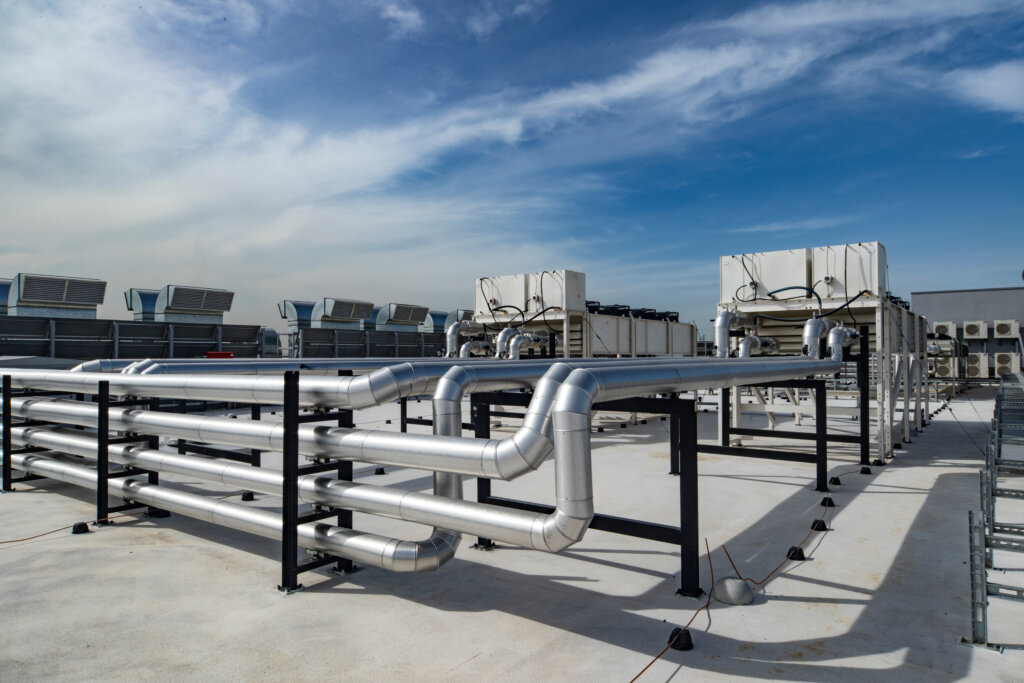
OVHcloud has just launched its second data center in Singapore (Image by Shutterstock).
OVHcloud expands data center footprint in Singapore
- OVHcloud unveils its most sustainable data center to date.
- This is the second OVHcloud data center in Singapore.
- OVHcloud can be regarded as a pioneer in optimizing data center water consumption.
When it comes to data centers in Singapore, there are a few things data center providers need to consider before they build and operate in the city-state. Apart from the lack of land to build new data centers, Singapore also has several requirements to ensure that the newly built data centers are focused on sustainability.
This is why when Singapore lifted its four-year moratorium on data centers, the government issued licenses for 80MW data center capacity, with the hope of attaining sustainable growth. At the same time, the Infocomm Media Development Authority (IMDA) also issued new standards aimed at allowing a gradual increase in data center operating temperatures. A world first, the increase in temperature could lead to savings of between 2% and 5% in the cooling budget for operators.
According to a report by Mordor Intelligence, in Singapore, 7% of total electricity consumption goes to data centers, which may grow to more than 12% by 2030. Operators are considering investing in more efficient cooling solutions, such as district cooling, and greener options for powering data centers, such as engaging in Power Purchase Agreements (PPAs).
The Singapore data center market is moderately consolidated, with the top five companies occupying 46.09%. The major players in this market are 1-Net Singapore Pte Ltd. (Mediacorp), AirTrunk Operating Pty Ltd., Equinix, Inc., Princeton Digital Group and STT GDC Pte Ltd. It is important to note that almost all these companies have also invested or plan to invest in neighboring Malaysia, in order to meet customer demand.

This is the second OVHcloud data center in Singapore.
Building sustainable a data center in Singapore
While the Singaporean data center market has limited growth opportunities, OVHcloud has just launched its second data center there. Simultaneously marking the deployment of its most sustainable data center in the Asia-Pacific region to date, the launch comes as part of OVHcloud’s global strategic plan to establish 15 new sites by 2024.
The European cloud leader opened its first data center in Mumbai in March this year and plans to add an additional site in Sydney next year. The expansion will boost regional availability of open, trusted and sovereign cloud solutions for customers to meet their increasing digital needs.
Given the focus on sustainability, the new data center by OVHcloud will have the most advanced water cooling technology. This will also set a new standard for eco-friendly data centers in Singapore, with best-in-class sustainability metrics with an even higher server density.
The new data center marks a pivotal development for the Republic after the lifting of the data center moratorium previously set in 2019 and the introduction of stricter criteria for new data centers to support a Power Usage Effectiveness (PUE) of 1.3 or better.
Michel Paulin, chief executive officer at OVHcloud commented that Singapore remains a critical market for the company. Paulin added that there is a clear need for data centers, particularly sustainable ones, that can both lower the overall carbon footprint of digitalization and support the compute needs of emerging technologies, like generative AI, for Singapore to retain its position as a leading digital innovation hub.
“As a pioneer in water cooling technology for more than 20 years, we are confident in our ability to reliably meet customers’ needs for sustainable cloud solutions as their digital needs evolve,” said Paulin.

OVHcloud has a history in optimizing data center water consumption. (Image by Shutterstock)
Water cooling technology
While data centers have generally been using air cooling systems to manage temperatures, liquid cooling is seen as a more sustainable method. Air cooling systems use have cold air, blown across or circulated around the hardware, dissipating the heat by exchanging warmer air with cooler air. However, air cooling simply can’t keep up with the increased densities and heavy processing loads required today – let alone tomorrow.
Meanwhile, liquid cooling uses water and other liquids that are far more efficient at transferring heat than air. In fact, liquid cooling is anywhere between 50 and 1,000 times more efficient than air cooling. Liquid cooling also promises to help address many of the challenges that come with air cooling systems, especially as computing densities increase.
OVHcloud in particular has continued to refine and deploy its proprietary water-cooling technology at scale. Using two decades of industrial innovation to maximize resource efficiency, OVHcloud can be regarded as a pioneer in optimizing data center water consumption.
As such, OVHcloud’s newest data center will feature an integrated water-cooling system that is built into a vertical rack designed to facilitate cooling at the server level, eliminating the need for air conditioning in server rooms, with significant benefits in costs and environmental impact.
At the same time, the design will also allow precise and efficient cooling, so that it would only require a single glass of water to cool an OVHcloud server over 10 hours when many servers on the market would need seven times more water.

OVHcloud’s global strategic plan is to establish 15 new sites by 2024.(Image by Shutterstock)
These advancements have allowed OVHcloud to achieve exceptional sustainability standards, boasting a PUE as low as 1.29 and a WUE (Water Usage Effectiveness) of 0.30l/kWh, both significantly lower than the industry average. As OVHcloud also manufactures its own racks and servers, it has established an integrated industrial model that delivers a sustainable cloud by design, with a CUE (Carbon Usage Effectiveness) of 0.18.
These innovations represent new strides in OVHcloud’s technological and industrial expertise, with adaptions of its infrastructure to operate sustainably in tropical conditions as well as temperate climates.
Terry Maiolo, vice president and general manager for APAC at OVHcloud, said the company’s latest data centers, coupled with enhanced compute and storage capabilities, will elevate their ability to provide customers in Singapore and the region with high-performance, sustainable cloud solutions that have optimized and predictable performance-price ratios to support their digital ambitions.
“For a truly data-secure ecosystem, this must also mean organizations in this region and beyond have the confidence to harness the cloud while maintaining control over their data, all within the framework of Asia’s dynamic and evolving regulatory landscape,” Maiolo said.
READ MORE
- Data Strategies That Dictate Legacy Overhaul Methods for Established Banks
- Securing Data: A Guide to Navigating Australian Privacy Regulations
- Ethical Threads: Transforming Fashion with Trust and Transparency
- Top 5 Drivers Shaping IT Budgets This Financial Year
- Beyond Connectivity: How Wireless Site Surveys Enhance Tomorrow’s Business Network






